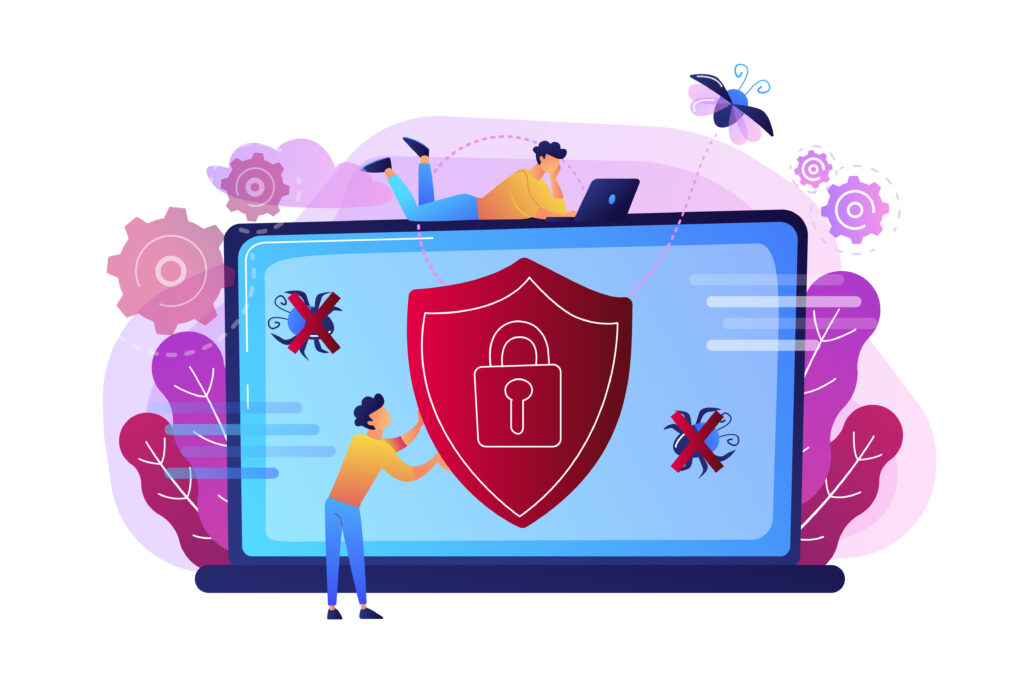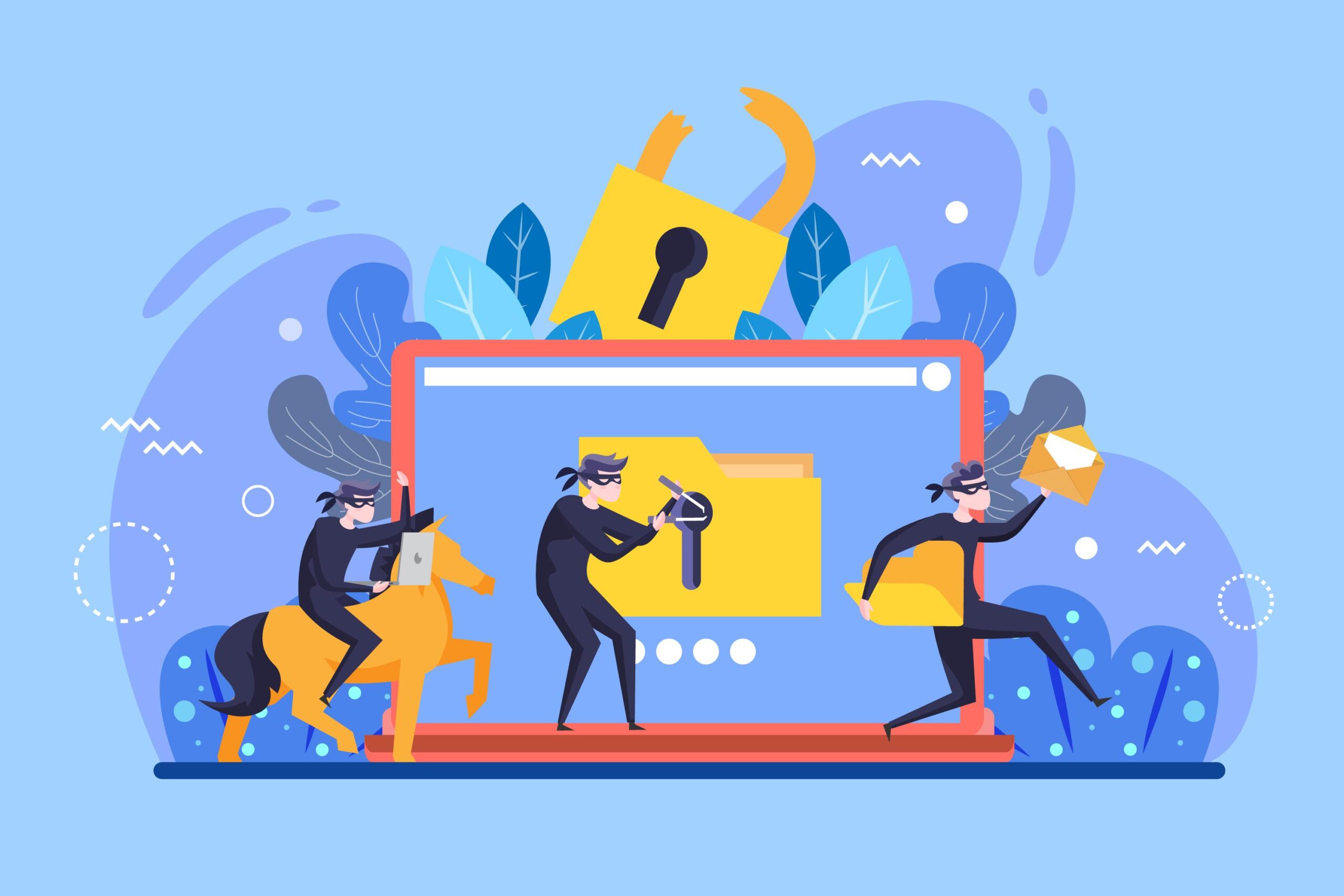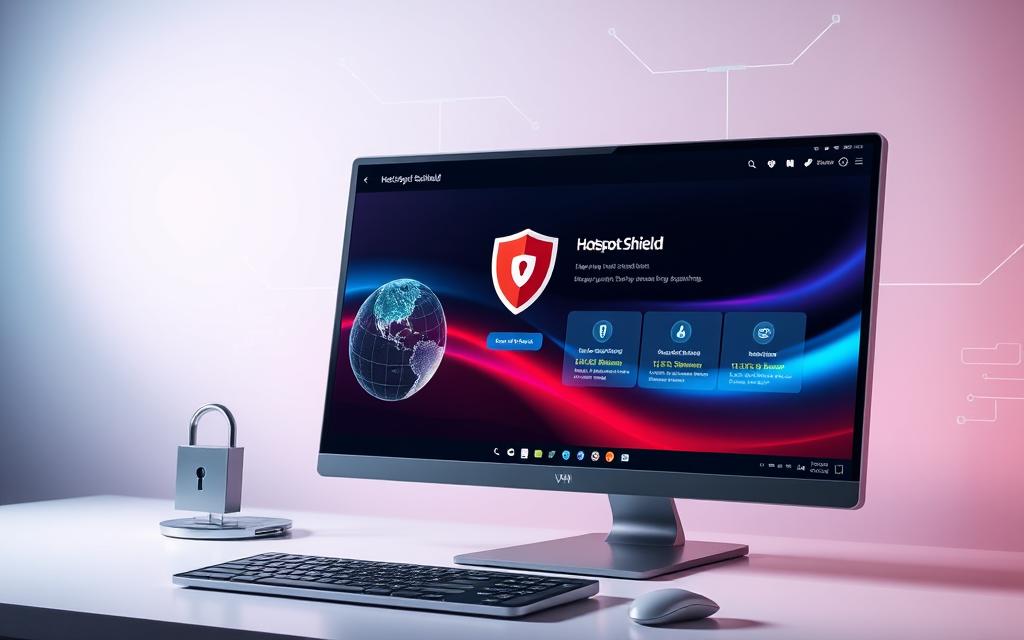10 Ways How to Stay Safe Online
Staying safe and secure online is becoming more and more important as the internet continues to expand. With the rise of cybercrime, it’s essential that all internet users take steps to protect themselves. This guide will provide you with tips and best practices for staying safe and secure online, so that you can enjoy the benefits of the internet without putting yourself at risk. From understanding common threats to implementing protective measures, this guide will help you stay safe while browsing the web.
What are the risks of the internet?
With a wealth of information and endless opportunities to connect with others, it’s easy to get caught up in how amazing the internet can be. However, this explosion of technology has also brought a world where malicious hackers can more easily gain access to your personal information. From having your identity stolen or money taken from your account without permission, there are many ways that cybercrime is happening everyday. This guide will provide you with tips and best practices for staying safe online so that you can enjoy the benefits of the internet without putting yourself at risk.
sense is your best friend. You may be tempted to open every email or tweet that comes your way, but if something seems too good to be true, it probably is. If a company asks for your social media information and they don’t already have it, they’re not legitimate. Never share personal information over the internet unless you know the person or business that you are talking to personally and can trust them with that information without consequences. This will help prevent identity theft, money scams and other crimes committed against you when using the Internet.Opt out of any offers for free trials of products or services by clicking on a “no thanks” button. If you agree to a trial, the company will keep your credit card number and charge your account. Cancel before signing up for anything. Scammers often use this tactic to sign you up for an expensive service or product in exchange which they then hold over your head until they get your money or information.
10 Tips How to Stay Safe Online!
1. Use Strong and Unique Passwords
Using strong and unique passwords means creating a password that is difficult to guess and using different passwords for each of your online accounts. A strong password is one that is long and complex, containing a mix of upper and lower case letters, numbers, and special characters. A unique password is one that is not used for any other account, which means that if one account is compromised, the hacker will not have access to all of your other accounts.
Creating strong and unique passwords can help protect your personal information and prevent unauthorized access to your accounts. When creating a password, avoid using easily guessable information such as your name, birthdate, or common words. Instead, consider using a combination of random words, numbers, and symbols to make your password harder to crack.
It’s important to use strong and unique passwords for all of your online accounts, including your email, social media, and financial accounts. If you find it difficult to remember all of your passwords, consider using a password manager tool to securely store them for you. By using strong and unique passwords, you can help protect your personal information and prevent cyber attacks.
2. Enable Two- Factor Authentication
Two-factor authentication (2FA) is a security feature that adds an extra layer of protection to your online accounts. It requires you to provide a second form of identification, in addition to your password, to verify your identity and access your account.
When you enable 2FA, you’ll usually be asked to provide a code that is sent to your mobile phone or generated by an authenticator app. This code is only valid for a short period of time and is required to complete the login process. This means that even if someone knows your password, they won’t be able to access your account without also having access to your phone or authenticator app.
Enabling 2FA can greatly increase the security of your online accounts and help protect your personal information from hackers and cyber criminals. Many popular websites and services offer 2FA as an option, including Google, Facebook, and Microsoft. It’s recommended that you enable 2FA on all of your accounts that support it, especially those that contain sensitive information such as banking or financial accounts.
While 2FA may seem like an extra step when logging into your accounts, it’s an important security measure that can help keep your information safe.
3. Keep Your Software Up-to-Date
Keeping your software up-to-date means ensuring that all the applications, programs, and operating systems on your devices are running the latest version available. Updates often include bug fixes, security patches, and performance improvements that can help protect your device from cyber threats and keep it running smoothly.
Hackers and cybercriminals often look for vulnerabilities in outdated software to gain access to your device and steal your personal information or infect it with malware. By keeping your software up-to-date, you’re reducing the risk of these types of attacks and keeping your device secure.
Most devices come with automatic update settings, which can be enabled to automatically download and install updates when they become available. However, it’s important to regularly check for updates manually and install them as soon as possible, especially for critical software such as your operating system, web browser, and security software.
It’s also important to ensure that you’re downloading updates from trusted sources. Be wary of downloading software or updates from unfamiliar websites or clicking on links in suspicious emails. Instead, go directly to the software manufacturer’s website to download updates or use the update feature built into the software.
By keeping your software up-to-date, you’re taking an important step towards ensuring the security and stability of your device, and protecting your personal information from cyber threats.
4. Use Antivirus Software

Antivirus software is a type of security software that is designed to protect your computer or other devices from malicious software, such as viruses, malware, and spyware. It works by scanning your device for any suspicious files or programs and removing or quarantining them if they’re found to be harmful.
Antivirus software provides an essential layer of protection against cyber threats that could potentially steal your personal information or damage your device. It’s important to use antivirus software and keep it up-to-date to ensure that your device is protected against the latest threats.
Most antivirus software will also include other features, such as firewalls and phishing protection, to help prevent attacks from malicious websites or hackers. Some software will also include tools to optimize your device’s performance and remove unwanted files.
There are many different antivirus software options available, both free and paid. When choosing antivirus software, it’s important to consider the level of protection offered, the ease of use, and any additional features that are important to you. It’s also important to ensure that the software is compatible with your device and operating system.
While antivirus software is an important tool for protecting your device, it’s not foolproof. It’s still important to practice safe browsing habits, such as avoiding suspicious websites and not downloading files from untrusted sources. However, using antivirus software is an important step towards ensuring the security and safety of your device and personal information.
5. Be Cautious of Suspicious and Attachments
Being cautious of suspicious links and attachments is an important step to protect yourself from cyber attacks, such as phishing and malware. Phishing is a type of attack where cybercriminals send emails or messages that appear to be from a trusted source, such as a bank or a company, but are actually designed to trick you into providing personal information or clicking on a malicious link. Malware is malicious software that can infect your device and cause damage, such as stealing personal information or locking you out of your device.
To avoid falling victim to phishing and malware attacks, it’s important to be cautious of suspicious links and attachments. This means not clicking on links or downloading attachments from unfamiliar sources or from messages that seem suspicious. Be wary of messages that are urgent, offer rewards or prizes, or ask for personal information.
One way to identify suspicious links is to hover your mouse over the link to see the URL. If the URL looks unfamiliar or has a strange domain name, it’s likely a phishing attempt. Additionally, make sure that you only download attachments from trusted sources and only open them if you’re expecting them.
It’s also important to keep your software up-to-date and use antivirus software to help identify and remove any malicious links or attachments that may have slipped through. Most antivirus software includes email scanning to identify any suspicious messages or attachments.
By being cautious of suspicious links and attachments, you can help protect yourself from cyber attacks and keep your personal information safe. Remember to always be vigilant and use common sense when clicking on links or downloading attachments.
6. Use Secure Websites
Using secure websites is an important step towards protecting your personal information and online identity. Secure websites are those that use encryption to protect data transmitted between your device and the website, ensuring that sensitive information like passwords and credit card numbers can’t be intercepted by hackers or cybercriminals.
You can tell if a website is secure by looking for the “https” at the beginning of the website’s URL, as well as the padlock icon in the address bar of your web browser. The “s” in “https” stands for secure and indicates that the website has a valid SSL/TLS certificate, which is used to encrypt the data transmitted between your device and the website.
When using secure websites, it’s important to ensure that you’re on the correct website and that it’s not a phishing attempt. Cybercriminals may create fake websites that look like legitimate ones to trick you into entering your personal information. Always double-check the URL and look for the padlock icon to ensure that you’re on the correct website.
It’s also important to use strong and unique passwords when creating accounts on secure websites. This can help protect your accounts in the event of a data breach or hack. Additionally, avoid using public Wi-Fi or unsecured networks when accessing secure websites, as these networks can be easily intercepted by cybercriminals.
By using secure websites, you can help protect your personal information and ensure that your online activities are safe and secure. Remember to always be cautious when entering personal information online and use common sense to protect your online identity.
7. Avoid Public Wi-Fi
Public Wi-Fi is a convenient way to access the internet while on the go, but it can also pose a significant risk to your personal information and online security. Public Wi-Fi networks are often unsecured and can be easily intercepted by cybercriminals, who can then use this information for malicious purposes.
When you use public Wi-Fi, anyone on the same network can potentially access the information you’re transmitting, including your usernames, passwords, and other personal information. This can make you vulnerable to hacking, identity theft, and other cyber attacks.
To avoid the risks associated with public Wi-Fi, it’s best to avoid using it altogether, especially when accessing sensitive information like your bank account or email. Instead, consider using a mobile data plan or a personal hotspot from your smartphone. If you must use public Wi-Fi, be sure to use a virtual private network (VPN) to encrypt your data and protect your privacy. A VPN creates a secure, encrypted connection between your device and the internet, making it difficult for anyone on the network to intercept your data.
It’s also important to be cautious when using public Wi-Fi and avoid accessing sensitive information or entering passwords and personal information. Instead, stick to browsing the web or using apps that don’t require sensitive information.
By avoiding public Wi-Fi or using a VPN, you can help protect your personal information and ensure that your online activities are safe and secure. Remember to always be cautious when using public Wi-Fi and take steps to protect your privacy and security.
8. Use a VPN
Using a Virtual Private Network (VPN) is a great way to protect your online privacy and security while accessing the internet. A VPN encrypts your internet traffic and routes it through a private network, hiding your IP address and location from prying eyes. This makes it difficult for anyone to track your online activities or steal your personal information.
When you use a VPN, your internet traffic is encrypted and travels through a secure tunnel to a VPN server located in a different geographic location. This means that your online activity appears to be originating from the location of the VPN server, rather than your actual location. This can be useful if you want to access content that is blocked in your country, or if you want to protect your identity and privacy online.
VPNs can be especially useful when using public Wi-Fi networks, which are often unsecured and can be easily intercepted by cybercriminals. By using a VPN, you can ensure that your internet traffic is encrypted and secure, even when using public Wi-Fi.
It’s important to note that not all VPNs are created equal, and some may log your internet activity or sell your data to third parties. When choosing a VPN, it’s important to do your research and choose a reputable provider that prioritizes your privacy and security. Look for a VPN with strong encryption protocols, a no-logging policy, and a clear privacy policy.
Overall, using a VPN is an effective way to protect your online privacy and security, especially when accessing the internet on public networks or when traveling. Remember to choose a reputable provider and always use common sense when browsing the web to protect your online identity and personal information.
9. Be Careful on Social Media
Social media can be a great way to connect with friends and family, share your life experiences, and stay up-to-date on news and events. However, it’s important to be cautious when using social media platforms, as they can also pose risks to your online privacy and security.
Here are some tips for staying safe on social media:
- Keep your personal information private: Avoid sharing personal information like your full name, date of birth, phone number, or address on social media. This information can be used by cybercriminals to steal your identity or commit fraud.
- Be careful what you post: Think twice before sharing sensitive or personal information on social media, such as photos or posts about your location or travel plans. This information can be used by cybercriminals to target you or your loved ones.
- Use strong and unique passwords: Make sure to use a strong, unique password for each of your social media accounts. This can help protect your accounts from being hacked or compromised.
- Be cautious of friend requests: Be careful when accepting friend requests from people you don’t know, as they may be fake profiles or cybercriminals trying to access your personal information.
- Adjust your privacy settings: Make sure to review and adjust your privacy settings on your social media accounts to control who can see your posts and personal information.
- Beware of scams: Be cautious of scams on social media, such as fake contests or surveys that ask for personal information or require you to download software.
- Think before you click: Be careful when clicking on links or downloading attachments on social media, as they may contain malware or phishing scams designed to steal your personal information.
Overall, being careful on social media means being mindful of what you share, who you connect with, and being aware of the risks and scams that exist. By taking these precautions, you can stay safe and protect your online privacy and security on social media platforms.
10. Use Common Sense
Using common sense means applying practical knowledge and sound judgment when using the internet. It involves being aware of potential risks and taking steps to protect yourself from them. Here are some tips for using common sense when using the internet:
- Be cautious of unsolicited emails: If you receive an email from an unknown sender or with an unusual subject line or attachment, be cautious. It’s best to delete the email or verify its authenticity with the sender before taking any action.
- Avoid clicking on suspicious links: Be wary of links in emails, social media posts, or websites that look suspicious or unusual. Instead, hover over the link to see the URL and verify that it is a legitimate site before clicking on it.
- Use caution when downloading software: Only download software from reputable sources, such as official app stores or the website of the software vendor. Be cautious of free downloads from unknown websites, as they may contain malware or viruses.
- Be mindful of your online activity: Be aware of the information you share online, including personal details, photos, and posts. Think before you post and consider how the information may be used by others.
- Protect your devices: Use antivirus software, keep your software up-to-date, and enable two-factor authentication to protect your devices from cyber threats.
- Use strong and unique passwords: Use strong passwords for your online accounts and avoid using the same password across multiple accounts. This can help prevent hackers from accessing your accounts.
- Be cautious of public Wi-Fi: Public Wi-Fi networks can be insecure, so avoid accessing sensitive information or logging into online accounts while using them.
In summary, using common sense when using the internet involves being aware of potential risks and taking steps to protect yourself from them. By applying practical knowledge and sound judgment, you can stay safe and protect your online privacy and security.




